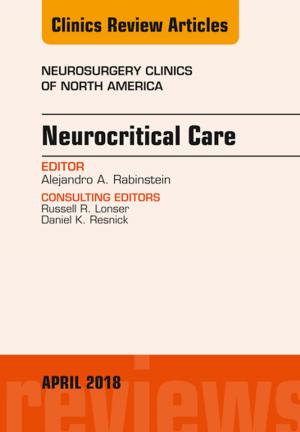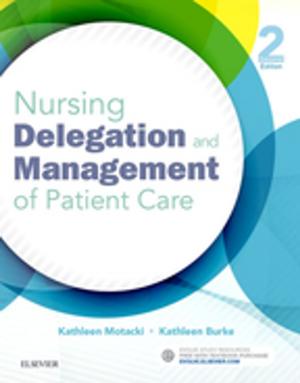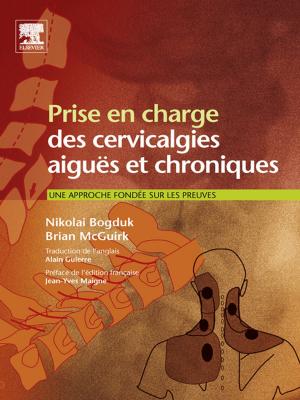Advanced Practice Nursing E-Book
An Integrative Approach
Nonfiction, Health & Well Being, Medical, Nursing, Maternity, Prenatal, & Women&, Reference| Author: | Ann B. Hamric, PhD, RN, FAAN, Judith A. Spross, PhD, RN, AOCN, FAAN, Charlene M. Hanson, EdD, RN, CS, FNP, FAAN | ISBN: | 9781437720082 |
| Publisher: | Elsevier Health Sciences | Publication: | July 2, 2008 |
| Imprint: | Saunders | Language: | English |
| Author: | Ann B. Hamric, PhD, RN, FAAN, Judith A. Spross, PhD, RN, AOCN, FAAN, Charlene M. Hanson, EdD, RN, CS, FNP, FAAN |
| ISBN: | 9781437720082 |
| Publisher: | Elsevier Health Sciences |
| Publication: | July 2, 2008 |
| Imprint: | Saunders |
| Language: | English |
Covering all advanced practice competencies and roles, this book offers strategies for enhancing patient care and legitimizing your role within today’s health care system. It covers the history of advanced practice nursing, the theory behind the practice, and emerging issues. Offering a comprehensive exploration of advanced practice nursing, this edition also adds a focus on topics including the APN scope of practice, certification, and the ethical and legal issues that occur in clinical practice.
-
The development of all major competencies of advanced practice nursing is discussed: direct clinical practice, consultation, coaching/guidance, research, leadership, collaboration, and ethical decision-making.
-
Advanced practice competencies are discussed in relation to all advanced practice nursing and blended CNS-NP roles (case manager, acute care nurse practitioner), highlighting the shared aims and distinctions of each role.
-
In-depth discussions on educational strategies explain how competencies develop as the nurses’ practice progresses.
-
A chapter on research competencies demonstrates how to use evidence-based research in practice, and how to promote these research competencies to other APNs.
-
A conceptual framework shows the clear relationship between the competencies, roles, and challenges in today’s health care environment.
-
Practical strategies are provided for business management, contracting, and marketing.
-
Comprehensive information covers the essential competencies of the new Doctor of Nursing Practice degree.
-
More exemplars (case studies) provide real-life scenarios showing APN competencies in action.
-
A new chapter shows how to provide reliable and valid data to substantiate your impact and justify equitable reimbursement for APN services, also enhancing your skills in quality improvement strategies, informatics, and systems thinking.
-
Information on telehealth considerations covers the new sources of electronic healthcare information available to patients and describes how to counsel them on using reliable resources.
Covering all advanced practice competencies and roles, this book offers strategies for enhancing patient care and legitimizing your role within today’s health care system. It covers the history of advanced practice nursing, the theory behind the practice, and emerging issues. Offering a comprehensive exploration of advanced practice nursing, this edition also adds a focus on topics including the APN scope of practice, certification, and the ethical and legal issues that occur in clinical practice.
-
The development of all major competencies of advanced practice nursing is discussed: direct clinical practice, consultation, coaching/guidance, research, leadership, collaboration, and ethical decision-making.
-
Advanced practice competencies are discussed in relation to all advanced practice nursing and blended CNS-NP roles (case manager, acute care nurse practitioner), highlighting the shared aims and distinctions of each role.
-
In-depth discussions on educational strategies explain how competencies develop as the nurses’ practice progresses.
-
A chapter on research competencies demonstrates how to use evidence-based research in practice, and how to promote these research competencies to other APNs.
-
A conceptual framework shows the clear relationship between the competencies, roles, and challenges in today’s health care environment.
-
Practical strategies are provided for business management, contracting, and marketing.
-
Comprehensive information covers the essential competencies of the new Doctor of Nursing Practice degree.
-
More exemplars (case studies) provide real-life scenarios showing APN competencies in action.
-
A new chapter shows how to provide reliable and valid data to substantiate your impact and justify equitable reimbursement for APN services, also enhancing your skills in quality improvement strategies, informatics, and systems thinking.
-
Information on telehealth considerations covers the new sources of electronic healthcare information available to patients and describes how to counsel them on using reliable resources.















